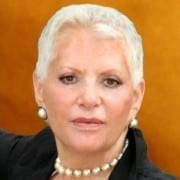How to Achieve Financial Independence as a Physician
You spent a decade of your life, give or take a few years, doing the hard work it took to get your medical license. Now, it’s time to start planning for the days when you won’t need to work at all!
Financial independence is a wise goes to strive for. There’s no set age where this should happen, although many people aim for being financially free by their retirement years. Still, now that you’re making a steady, impressive income as a doctor, there’s no reason why you can’t achieve this goal sooner.
Pressure and stress in the healthcare sector is a major problem. As more physicians flee the field due to burnout and overwork, a balance between professional and personal living becomes essential. Being free from the confines of debt gives you control over your life, letting you choose the jobs that you are passionate about and working on your terms.
With these tips to guide you as you spend, save, and invest, you can label yourself financially free while you’re still young, and live off of the wealth you’ve gained long before physician burnout becomes a serious concern.
1. Visualize Your Financial Independence
What does being financially free mean to you? Having a vision of your future where money is not the central concern will help you remember why you don’t need to buy that expensive house or the latest gadgets — yet.
Is your goal to retire within a certain number of years? What does your retirement look like? Where do you want to live, and what kind of quality of life would you best prefer? Would your goal be a “debt-free-by-set-age” type of target?
These answers are the key to the next steps in your financial independence journey. They’ll help you as you determine the numbers that will become your saving and investing targets.
2. Evaluate Your Projected Expenses
Many people use their income to determine their savings. They add their expenses, subtract that total from their net income, and then allocate what they can into their investments.
That’s not you.
Successful future planning is about being proactive — taking your projected spending and using a formula to determine how much money you’ll need to set aside per year to reach a target.
First, consider meeting with a financial advisor who understands the needs of a physician. This person or team understands how to project costs for living expenses using calculations that include inflation and expense increases. They may have suggestions that will help you obtain a more accurate number.
3. Evaluate Your Projected Income
Once you have your projected expenses, including things like education for your children, weddings, new cars, and other major expenditures, make a list of the money you’ll have coming in after you stop working actively. Passive income could be anything from side work to real estate income.
For most physicians, this is where the gains from investments they made while working matter. Determining the right kind of portfolio investing that will meet your needs is the key to having that stable passive money stream. Investments like 401(k)s, traditional and Roth IRAs, CDs, stocks and bonds, and other strategies are designed to make your retirement years easier.
Make another column to total your projected annual income, including consistent side work and other steady earnings, while you’re working. This number will be used to help you determine how long it will take until you reach your goals.
4. Use Those Numbers to Determine Your Financial Independence Cost
With these numbers in mind (and the guidance of a financial advisor, if necessary), you can approach your financial independence goal one of two common ways:
- Use the target of how many years you want to work and divide your expenses by that number to see how much money you need to set aside each year to reach it, or
- Use a percentage of your income to allocate to savings and investments (usually 20% based on the 50/30/20 rule). Divide the total you need for financial independence by the annual savings, and this will determine how many years you need to work to reach your goal.
These numbers will change as your income and expenses fluctuate over the years. Still, you will better grasp your financial independence numbers using strategic investing for high-income earners like physicians, as discussed in this article by OJM Group. You have a direction to go, an idea of why you want to be frugal with your spending, and a light at the end of the tunnel of your busy days.
Conclusion
Financial independence means you control your life. You get to decide whether or not you continue working, and what that looks like. To get there, you may need to say no to living excessively right now, and use the numbers you and your financial planner calculated to work towards the end goal of economic freedom.












Leave a Reply
Want to join the discussion?Feel free to contribute!